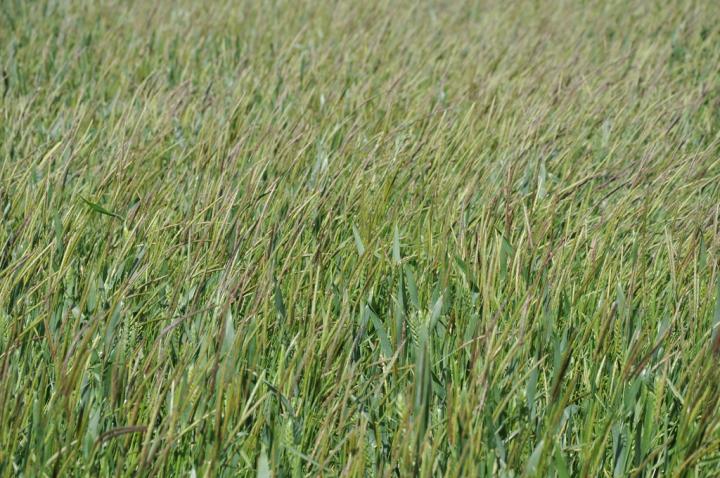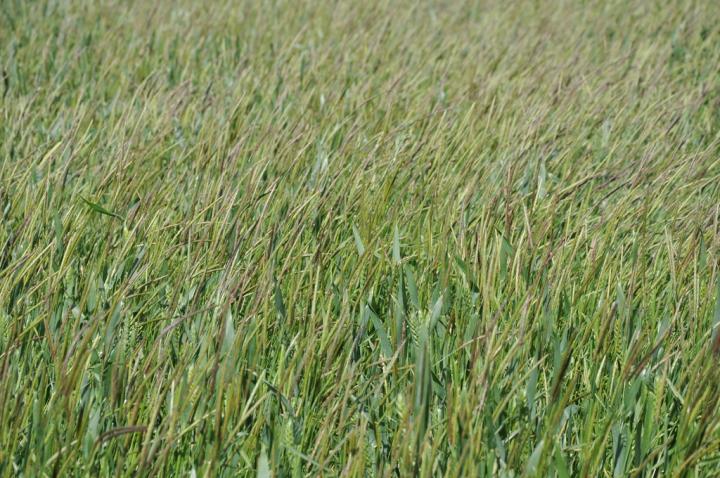
Credit: Rothamsted Research
Jonathan Storkey, Plant Ecologist and Leader of Achieving Sustainable Agricultural Systems (ASSIST), one of Rothamsted's five strategic research programmes: The negative impacts of pesticides on the environment mean that reducing their use should continue to be a policy and research aim.
However, the level of food production and affordability of food we have become accustomed to cannot be currently maintained without chemical crop protection products. While every effort should be taken to reduce the risk of pesticides to human health and the environment, therefore, these risks need to be balanced against the benefits they bring in terms of food security.
In the context of this difficult balancing act, I believe the renewal of the approval of glyphosate is to be cautiously welcomed and is the right decision. In terms of direct toxicity on non-target organisms, it is relatively benign, and it is an important mainstay of weed control.
Some weed species that have evolved resistance to other herbicides would become extremely difficult to control without glyphosate and it is particularly useful in cropping systems that minimise soil disturbance which itself brings environmental benefits.
That said, the scrutiny of glyphosate emphasises the importance of finding ways to control weeds that are less reliant on chemical control – a goal that is a focus of weed scientists at Rothamsted.
###
About Rothamsted Research
Rothamsted Research is the oldest agricultural research institute in the world. We work from gene to field with a proud history of ground-breaking discoveries. Our founders, in 1843, were the pioneers of modern agriculture, and we are known for our imaginative science and our collaborative influence on fresh thinking and farming practices. Through independent science and innovation, we make significant contributions to improving agri-food systems in the UK and internationally. In terms of its economic contribution, the cumulative impact of our work in the UK exceeds £3000 million a year (Rothamsted Research and the Value of Excellence, by Séan Rickard, 2015). Our strength lies in our systems approach, which combines science and strategic research, interdisciplinary teams and partnerships. Rothamsted is also home to three unique resources. These National Capabilities are open to researchers from all over the world: The Long-Term Experiments, Rothamsted Insect Survey and the North Wyke Farm Platform. We are strategically funded by the Biotechnology and Biological Sciences Research Council (BBSRC), with additional support from other national and international funding streams, and from industry.
About BBSRC
BBSRC invests in world-class bioscience research and training on behalf of the UK public. Our aim is to further scientific knowledge, to promote economic growth, wealth and job creation and to improve quality of life in the UK and beyond. Funded by Government, BBSRC invested over £469M in world-class bioscience in 2016-17. We support research and training in universities and strategically funded institutes. BBSRC research and the people we fund are helping society to meet major challenges, including food security, green energy and healthier, longer lives. Our investments underpin important UK economic sectors, such as farming, food, industrial biotechnology and pharmaceuticals.
Media Contact
Susan Watts
[email protected]
44-015-829-38109
http://www.rothamsted.bbsrc.ac.uk
Original Source
https://www.rothamsted.ac.uk/news/glyphosate-renewal-approved





